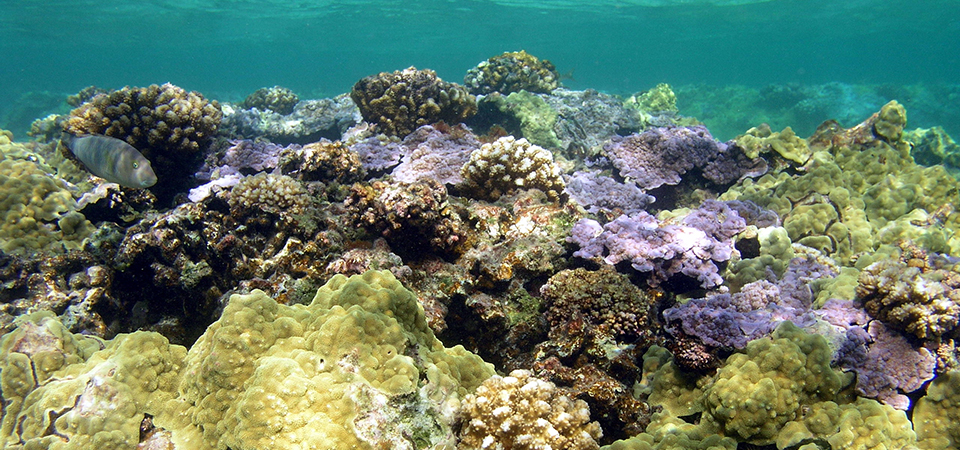Can a coral reef recover from bleaching and other stressful events?
If local threats are reduced, coral reefs have a greater chance of surviving a larger climate event, such as bleaching.

Coral reefs in the clear blue waters of Kure Atoll in Hawaii's Papahānaumokuākea Marine National Monument.
Climate change and ocean acidification can result in mass coral bleaching events, increased susceptibility to disease, slower growth and reproductive rates, and degraded reef structure.
There are no quick fixes when it comes to a changing climate. In the long term, coral reefs around the world will benefit the most from the reduction of greenhouse gases. In the short term, we can improve coral reef resilience by addressing local stressors, like runoff from land-based sources of pollution and overharvesting of fish.
NOAA’s Coral Reef Conservation Program is helping local managers and communities do just that. The idea is simple. We know climate change is the single greatest global threat to coral reefs. Promoting reef resilience is a local solution. A resilient coral reef is one that can either resist a large-scale stressful event or recover from it. For this to happen, local threats must be kept to a minimum to reduce stress and improve overall reef condition. Scientists are also honing ways to evaluate how resilient a coral reef ecosystem is so that managers can take targeted actions that have the greatest impact.
Healthy coral reefs support an amazing diversity of marine life and are often called the rainforests of the sea. Coral reefs provide many benefits to people, including coastal protection, food, jobs, medicine, and recreational activities.
Search Our Facts
Get Social
More Information
Did you know?
Just as people tend to get sick when under stress, so do corals. If local stressors to coral reefs are reduced, the corals have a better chance of recovering from an event such as coral bleaching. In this way, the reefs are more resilient.

Last updated: 06/16/24
Author: NOAA
How to cite this article